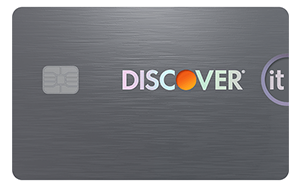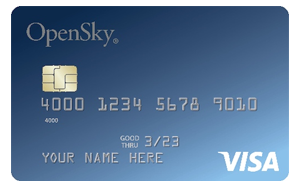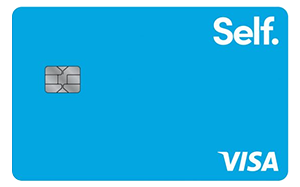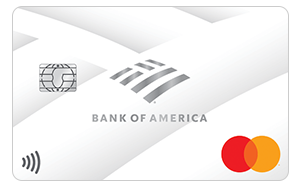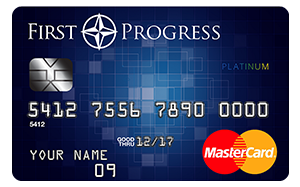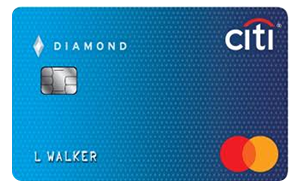Just about every adult in the US has faced the same dilemma at the beginning of their financial journey: how do you start building credit when you have no credit history to begin with?
It’s true that without an established credit history, it can be hard to open your first credit account. Fortunately, there are tricks that can make this much easier. Try these 6 methods to build credit when you’re just starting out.
Table of Contents
- 1. Piggyback off a family member or close friend
- 2. Get a beginner’s credit card
- 3. Get a credit-builder loan
- 4. Finance your next purchase
- 5. Get credit for your rent and utility bills
- 6. Use your foreign credit history to build credit in the USA
- Long-term habits to follow to turn no credit into good credit
1. Piggyback off a family member or close friend
Everybody has to start their credit journey somewhere, and there’s no shame in getting a little help from someone you trust.
Whether you’re trying to build credit at 18 or you’re older but just never had the need for credit before, there are a couple of ways you can use someone else’s good credit to begin establishing a credit history and credit score of your own.
Become an authorized user
Arguably, the quickest and easiest way to build credit when you’re starting from scratch is by becoming an authorized user on someone else’s credit card. This approach is known as piggybacking credit, and it’s a very common method for building credit in your teens, with parents often adding their children as authorized users.
Assuming the credit card company reports authorized users to the credit bureaus (TransUnion, Equifax, and Experian), the credit card’s full payment history will instantly be added to your own credit report. This in turn will boost your credit score.
Get a cosigner
Another way to start building a credit history is to ask someone to cosign a loan for you. This is a great solution for overcoming the difficulty of trying to get credit with no credit. It might enable you to meet a lender’s credit requirements and even snag the lowest interest rates on the market, even if you have no credit score.
Only use this approach if there’s actually a loan you need, like a student loan or car loan—it isn’t a good idea to take out loans just to build credit (with one exception, discussed below).
Bear in mind that cosigning a loan is a major commitment for both parties involved. If you fail to repay your loan, your cosigner will be legally obligated to pay it off for you.
There’s a difference between having bad credit and having limited credit
Having bad credit isn’t the same as having a limited or insufficient credit history. Lenders may reject your applications or offer you worse loan terms if you have limited credit experience, but this is different from cases where they deny credit to applicants due to a bad credit score or poor credit history.
2. Get a beginner’s credit card
Many people who are just beginning their credit journey start off by building credit with a credit card. Regardless of what type of card you get, using it occasionally and making all your payments on time will allow you to secure your first FICO and VantageScore credit scores.
It’s not easy qualifying for a new credit card when you have no credit history, but you do have a few options.
Secured credit cards
You don’t need good credit (or any credit at all) to get a secured credit card. Secured cards don’t come with many of the perks you’d get with an unsecured credit card, such as a high credit limit. In fact, you have to pay a security deposit for a secured credit card, and this deposit usually serves as your spending limit.
Nevertheless, just about anyone can qualify for one of these cards, and they’re a low-commitment and easy way to build credit. You can start by exploring the best secured credit cards currently on the market.
| Credit Card | Best For | Credit Score | Annual Fee | Welcome Bonus | |
|---|---|---|---|---|---|
| Secured Overall | 300–669 | $0 | Cashback Match | ||
| No Credit Check | 300–669 | $35 | |||
| Beginners | 300–669 | $25 | |||
| No Annual Fee | 300–669 | $0 | |||
| Bad Credit | 300–669 | $49 | |||
| Rebuilding Credit | 300–669 | $0 | |||
Student credit cards
If you’re a young adult or you’re attending college, then you may be able to get a student credit card. As the name suggests, these cards are specially designed to give students the opportunity to build credit.
Some unsecured student credit cards require good credit, but there are a couple that don’t advertise strict credit score requirements, such as the Discover It® Student Cash Back Card and Deserve® EDU Mastercard®. You may be able to get these credit cards even with no credit score. Explore our list of the best student credit cards for more.
Retail credit cards
Retail credit cards are different from other credit cards because in many cases you can only use them to make purchases at the store you got them at. This means their utility is quite limited, but they’re a good option for building credit from scratch because they usually have loose credit requirements. 1
Note that retail cards often come with higher interest rates, so it’s wise to limit your spending and pay off your credit card in full each month to avoid getting hit with steep interest charges.
3. Get a credit-builder loan
If you’re starting out on your credit journey, you should know about credit-builder loans. These are installment loans like personal loans or car loans, but they’re specifically designed to help beginners build a positive credit history.
When you take out a credit-builder loan, you don’t get the money upfront. Instead, you make set payments to your bank or credit union over a fixed period and only get access to the funds after you’ve made all your payments.
In many ways, a credit-builder loan is a lot like a savings account that counts toward your credit history. The best part about these loans is that you don’t need credit to qualify, and you’re not making a major financial commitment since your payments are going right back into your pocket.
4. Finance your next purchase
If you’re looking for an easy way to build credit, consider financing your next large retail purchase. There’s a wide range of things you can finance to build credit:
- Phones
- Furniture
- Home appliances (e.g., refrigerators and washing machines)
- Jewelry
- Computers and TVs
What to consider before financing a purchase
Before you commit to this option, make sure that the company you’re financing with will actually report your payments to the credit bureaus—otherwise they won’t actually get recorded on your credit report. Just check on the store’s website or ask someone in person or over the phone if you’re not sure.
To avoid getting unnecessary hard inquiries (credit checks) from rejected applications, you should also ask whether the company will check your credit before they approve your application. If they have credit score requirements that you won’t meet, tell them you’ve changed your mind and you don’t want to pursue financing.
Assuming there are no hiccups and your application is successful, your new credit account may appear on your credit report as an installment account or revolving credit account (like a credit card), depending on the type of financing you apply for.
If you go for a deferred or 0% interest financing option, make sure that you understand the terms of the agreement so that you don’t get stuck with a hefty interest bill for not paying off your purchase on time.
5. Get credit for your rent and utility bills
If you don’t want to open a credit account or you’re having trouble getting one due to your lack of a credit history, you can instead start building credit by self-reporting the bills you’re already paying. Rent and utility bills don’t normally build credit, but if you subscribe to a bill-reporting service, they’ll be added to your credit report and will start to contribute to your score.
You might be able to get credit for:
- Rent
- Phone bills
- Utility bills
- Internet bills
- Cable payments
You can build credit for free using Experian Boost, which allows you to add your regular bill payments (including streaming services e.g., Netflix, Hulu, and Disney+) to your Experian credit report.
Boost your credit for FREE with the bills you're already paying

Boost your credit for FREE with the bills you're already paying
- Experian Credit Report and FICO® Score updated every 30 days on sign in
- Instantly increase your credit scores for FREE with Experian Boost™
- Daily Experian credit monitoring and alerts
Additionally, you can sign up for a rental reporting service like Rental Kharma or RentReporters to get your rent payments added to your credit reports. Signing up for one of these will allow you to add your bills onto your TransUnion and Equifax credit reports as well as Experian, although unlike Experian Boost, these services cost money.
6. Use your foreign credit history to build credit in the USA
If you’ve recently immigrated, you don’t need to start from scratch when it comes to building a credit history in the USA. Although credit scoring systems differ between countries, other countries do have credit scores. You may be able to use your credit history from abroad to qualify for new credit in the United States.
For example, a company called Nova Credit partners with various creditors (such as telecommunications companies, credit card issuers, and student loan providers) to help immigrants, expatriates and other non-citizens get access to credit in the US.
By signing up, you may be able to build credit by financing a phone or using a credit card, even if you haven’t yet established credit in the United States.
Long-term habits to follow to turn no credit into good credit
Following the methods above is a good first step, but it’s not the only step you need to take if you want a good credit score. Building credit is a lifelong process, and maintaining good habits in the long term is equally important.
Follow these tips to keep your credit healthy:
- Always pay all your bills on time: Your payment history is the number one factor contributing to your credit score, so the most important thing you can do is make sure that you never make any late payments or allow your credit accounts to become delinquent.
- Keep your spending low: Getting access to credit for the first time can be exciting, but avoid spending beyond your means or maxing out your credit cards. Using too much credit can damage your score by increasing your credit utilization ratio (the amount of credit that you’re using), which will hurt your score.
- Keep your accounts open: The longer your credit accounts are open, the better. Your credit age (i.e., the length of your credit history) is a key factor in all the major credit scoring models because successfully managing debts in the long term is a sign of a reliable borrower.
- Think carefully before applying for new credit: Getting a good mix of credit accounts early on is good for your credit in the long term, but don’t go overboard. Applying for new credit when you don’t need it can actually hurt your score by triggering too many hard inquiries and making it more difficult to honor all of your financial commitments.
Having no credit may seem like an obstacle when you’re first starting out. However, as long as you apply for and use credit responsibly, there’s no reason you can’t hit the ground running.
Just manage your debts well and soon you’ll get access to all the benefits that come with good credit.
Takeaway: You can build credit from scratch by opening a beginner’s credit account or using credit-building tools.
- You can build credit from scratch by getting someone with good credit to add you as an authorized user to their credit card account or cosign a loan for you.
- Many people begin building credit with credit cards. Popular first-time credit cards include secured cards, student credit cards, and store cards.
- Other options for building credit when you have none include getting a credit-builder loan, financing your next purchase, or adding rent or utility bills to your credit reports.
- If you’ve moved to the US from another country, you may be able to use credit data from your home country to open credit accounts and begin building credit in the US.
- Once you start building credit, take steps to manage your finances responsibly so that you eventually establish a good credit history.

